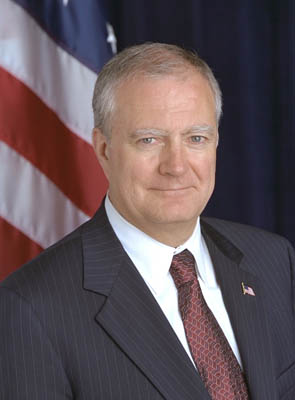JOHN MARBURGER 1941-2011 |
|
John H. “Jack” Marburger, known best for his role as science advisor to President George W. Bush, died on July 5 at age 70. The Center first interacted with Dr. Marburger when he spoke in our Science Advisors series in 2005. Roger Pielke, Jr., blogged about his reminiscences of Dr. Marburger: |
|
|
 |
See also Pielke, Jr., R. A. (2011), John Marburger (1941–2011) Physicist and longest-serving US presidential science adviser. Nature 476 (284), doi: 10.1038/476284a. Other former students and faculty share their thoughts on Dr. Marburger’s passing: |
|
|
||
Elizabeth McNieIt’s difficult to think of Jack Marburger in the past-tense. I first met him as a graduate student at CU when he came to speak about his role as the President’s Science Advisor. Later I was able to interact with Jack on issues close to his heart: the science of science and innovation policy. Throughout my engagement with him Jack seemed incredibly patient and interested in what I was saying, even when I was sure there were other people in the room with more interesting things to say. But that’s what made him so special to many of us who came to know him when we were graduate students and early-career professionals: his un-hurried presence and willingness to talk with and listen to our ideas, not to mention patience answering questions he’d probably fielded hundreds of times before. He may have been the Presidential Science Advisor when we first met him, but today he is simply Jack. Friend, mentor, coach, incredible scientist, role model...words can hardly describe how he’s informed our lives and careers. Jack’s passion for science, policy and science policy will live in unique ways in each of us whose lives and careers he has touched. We are, indeed, fortunate. Lisa Dilling I met Jack Marburger a few times, once when he was part of our series on Presidential Science Advisors and once in Washington, D.C. for our SPARC project’s “Usable Science” symposium with CSPO and Dan Sarewitz. I got to know him further through his insightful and well-written science policy articles on topics from how we decide on the direction of science policy to the use of intelligence in making decisions about weapons of mass destruction in Iraq. He played an instrumental role in initiating the now burgeoning field of “the science of science policy” and his thoughtfulness in this arena will be greatly missed. |


